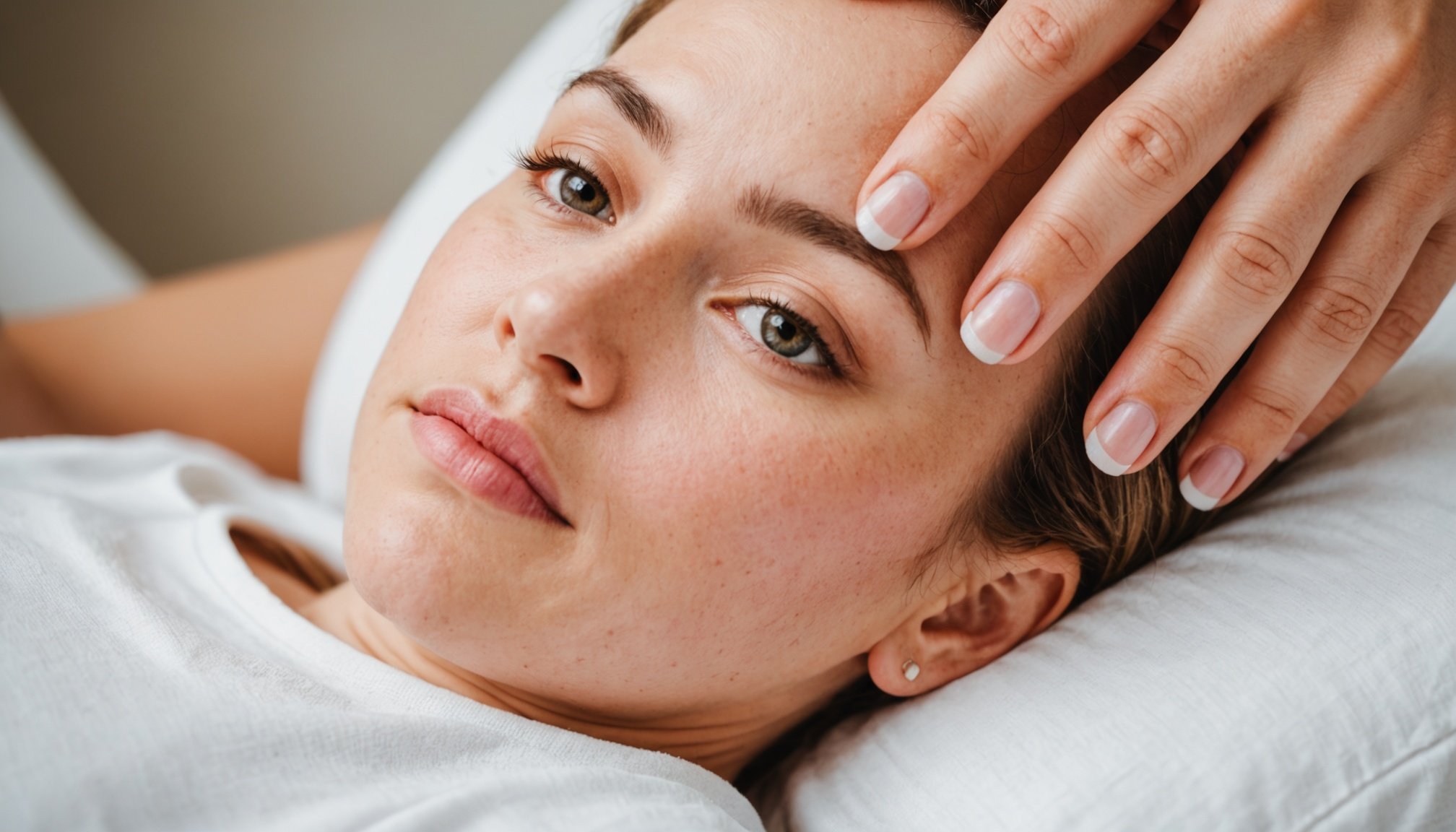Navigating UK Regulations: Ensuring the Safety of Cosmetic Treatments for Pregnant Women
When it comes to pregnancy, the health and well-being of both the mother and the baby are of paramount importance. For pregnant women in the UK, navigating the world of cosmetic treatments can be confusing and daunting, given the numerous restrictions and guidelines in place. Here’s a comprehensive guide to help you make informed decisions about cosmetic treatments during pregnancy.
Understanding the Risks and Safety Precautions
Pregnancy is a time of significant physical and hormonal changes, and these changes can affect how the body responds to various cosmetic treatments. It is crucial to understand the risks associated with different procedures to ensure safety.
Also to discover : Creating a Safe & Stylish Nursery for Newborns: A Comprehensive Guide to UK Safety Standards
Avoiding Hazardous Treatments
Certain cosmetic treatments are strictly advised against during pregnancy due to the potential risks they pose to both the mother and the baby. Here are some treatments that should be avoided:
- Electrical Facials and Electrolysis: These treatments involve the use of electrical currents, which can be harmful during pregnancy. Instead, opt for manual facials that are tailored for pregnant women[1][3].
- Retinol and Vitamin A Derivatives: Products containing retinol, a form of vitamin A, are known to be teratogenic, meaning they can cause abnormalities in the developing fetus. Avoid any skincare products or treatments that include retinol, glycolic acid, or other alpha-hydroxy acids (AHAs)[1][3][5].
- Botox and Fillers: These treatments are not recommended during pregnancy due to the lack of research on their safety for pregnant women. It is always best to err on the side of caution and avoid them altogether[1][3].
- Sunbeds and Tanning: Sunbeds are not safe at any time, and during pregnancy, they pose an even greater risk. Instead, consider fake tanning treatments or self-tanning products, which are safer and can provide a similar glow without the risks[1][3].
Safe Treatments During Pregnancy
While some treatments are off-limits, there are many that are safe and can help pregnant women feel relaxed and pampered.
Topic to read : Top Footwear Recommendations for Expecting Mothers in the UK: Enhance Posture and Alleviate Back Pain
- Massages: Massages are highly recommended after the first trimester, provided they are performed by a qualified therapist who is trained in pregnancy massage. These massages can help with lymphatic drainage, toxin elimination, and relaxation. However, certain areas like the tummy, lower back, and the back of the ankles should be avoided, especially during the first and late stages of pregnancy[1][3].
- Facials: Facials are a great way to relax and can be adapted to be safe for pregnant women. Ensure that the facialist avoids hard skin peels, microdermabrasion, and products containing retinoids or essential oils that could be harmful[1][3].
- Pedicures and Manicures: These are safe as long as the products used are non-toxic. Gel nails and acrylics, however, involve strong chemicals and UV lights, which are best avoided[3].
Consulting Healthcare Professionals
Before undergoing any cosmetic treatment, it is essential to consult with your healthcare provider. Here are some key points to consider:
Pre-Treatment Consultations
- Full Consultation: Always have a full consultation with your therapist before any treatment to ensure there are no health complications that could make the treatment unsafe. This includes checking for conditions like high blood pressure or any pregnancy-related complications[1][3].
- Therapist Qualification: Ensure that the therapist is qualified and experienced in treating pregnant women. This is particularly important for massages and facials, where the therapist needs to be aware of the specific needs and limitations of pregnant women[3].
Essential Information to Share
When consulting with your healthcare provider or therapist, it is crucial to share the following information:
- Pregnancy Status: Inform your therapist about your pregnancy to ensure they use appropriate products and techniques.
- Health Conditions: Share any health conditions or complications related to your pregnancy.
- Previous Treatments: Inform them about any previous cosmetic treatments you have had.
Practical Advice for Pregnant Women
Here are some practical tips to keep in mind when considering cosmetic treatments during pregnancy:
Choosing Safe Products
- Check Ingredients: Always check the ingredients in your skincare products and avoid those that are not safe for pregnancy. Look for products that are specifically labeled as safe for pregnant women[1][5].
- Avoid Essential Oils: Certain essential oils, such as lavender, can bring on labor or cause other complications. Always ask about the products used in any treatment[3].
Timing of Treatments
- First Trimester: Avoid massages and other treatments during the first trimester. This period is critical for the baby’s development, and it’s best to be cautious[1][3].
- Second and Third Trimesters: Many treatments are safe during these periods, but it’s still important to follow the guidelines and consult with your healthcare provider.
Comfort and Safety
- Body Positioning: Avoid lying flat on your back, especially after the 20th week of pregnancy, as this can cause the uterus to compress the vena cava and reduce blood flow to the baby[3].
- Hydration: Stay hydrated during and after treatments to avoid dehydration, which can be more risky during pregnancy.
Table: Safe and Unsafe Cosmetic Treatments During Pregnancy
| Treatment | Safe During Pregnancy | Reasons for Safety or Risk |
|---|---|---|
| Massage | Yes (after 1st trimester) | Safe if performed by a qualified therapist, avoids certain areas[1][3] |
| Facials | Yes | Avoid hard skin peels, microdermabrasion, and retinoids[1][3] |
| Pedicures | Yes | Safe if non-toxic products are used[3] |
| Manicures | Yes (non-toxic products) | Avoid gel nails and acrylics due to strong chemicals and UV lights[3] |
| Botox and Fillers | No | Lack of research on safety for pregnant women[1][3] |
| Sunbeds and Tanning | No | Risk of overheating and skin damage[1][3] |
| Electrical Facials | No | Risk of electrical currents harming the baby[1][3] |
| Retinol and Vitamin A Derivatives | No | Teratogenic effects[1][3][5] |
| Saunas, Steam Rooms, Hot Tubs | No | Risk of overheating and dehydration[3] |
Quotes from Healthcare Professionals
- “Massage during a normal pregnancy is okay after the first trimester as long as you are in good pregnancy health. Speak to your midwife next time you see her if you have any concerns,” advises a healthcare professional from JM MediSpa[1].
- “Some essential oils, for example, can bring on contractions, so always ask for more detail and alternatives,” suggests an expert from The QHotels Collection[3].
Navigating the world of cosmetic treatments during pregnancy requires careful consideration and adherence to safety guidelines. By understanding what treatments are safe, consulting with healthcare professionals, and following practical advice, pregnant women can enjoy the benefits of cosmetic treatments while ensuring the health and safety of both themselves and their babies.
In the words of a healthcare professional, “It’s important to keep yourself healthy during pregnancy, and what better way to do it than with a massage or a facial, as long as they are performed safely and under the right conditions.”
By making informed decisions and choosing safe treatments, pregnant women in the UK can maintain their health, well-being, and beauty throughout their pregnancy journey.











